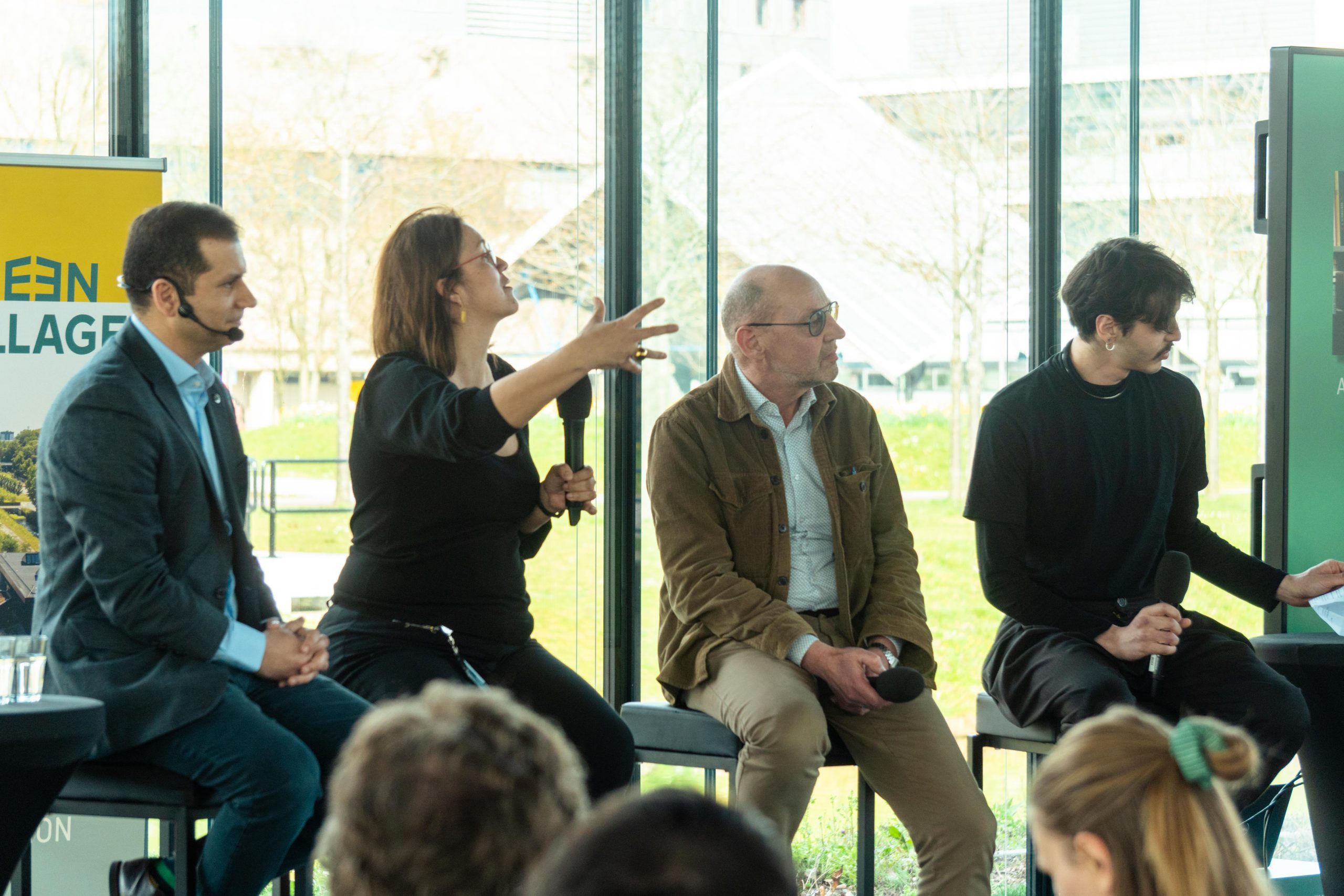TU Delft tried to list the opinions about the ties with the fossil fuel industry at a deliberation on 5 April. Did it work?
Panel members were presented statements on cooperating with the fossil industry (Photo: Thijs van Reeuwijk)
The energy transition is impossible without the support of the fossil fuel industry. And, if the fossil fuel industry needs TU Delft to make its work more sustainable, it is our job to cooperate.
Through eight statements like this, TU Delft staff members and students tried to gauge the opinions of the TU Delft community about cooperating with the fossil fuel industry on Wednesday afternoon 5 April. The statements were primarily intended for two groups consisting of nine panel members in total. The public could also vote through an online poll and, at certain times, discuss the issue through a microphone in the hall. Geert Maarse, a science journalist, was the moderator.
In advance, Prof. Herman Russchenberg, Professor of Climate Research, emphasised one aspect of conduct: it is fine to disagree with each other, but not to dismiss each other’s opinions.
The panel consisted of Dr Hadi Hajibeygi, Associate Professor of Subsurface Storage, Andrea Ramirez Ramirez, Professor of Low Carbon Systems and Technologies, and Emre Gökalan, student of System & Control and a member of End Fossil. They had a range of opinions about the overriding question underlying the debate: should TU Delft work with the fossil fuel industry?
‘It remains a complex issue’
Hajibeygi said that of course “the fossil fuel industry has made mistakes in the past. But if someone comes to you saying ‘I have made mistakes but I now want to do my best’, would you not help? Breaking down the ties with the fossil fuel industry is the worst thing we can do at the moment.”
Gökalan believes completely otherwise. “It is naive to think that the fossil fuel industry wants to radically change,” he said. “If they really wanted to do so, why have they not already started?” Applause rang from the audience.
Ramirez Ramirez was more nuanced. “In theory we can do without the fossil fuel industry, but do we have enough time?” She sees greater potential in cooperating under different legislation so that fossil fuel companies continue working on the energy transition, but under the conditions set by the Government.
The audience could respond towards the end of the debate. The question was raised if TU Delft should not align different universities in the country and in Europe regarding ties with the fossil fuel industry. This position was supported by the audience and Russchenberg too said that it was an interesting question to look into.
Moderator Geert Maarse asked the Rector Magnificus and audience member Tim van der Hagen if his thinking had changed on the fossil fuel question. “It remains a complex question and we will continue the discussion,” he replied.
At the end of the event, Dr Anne Pluymakers and Assistant Professor of Experimental Fluid-Rock Interaction said that she had learned from the debate. “I have adjusted my thinking and now think that we could take on a bit more of an activist role.”
Do you have a question or comment about this article?
K.S.vanderWal@tudelft.nl


Comments are closed.